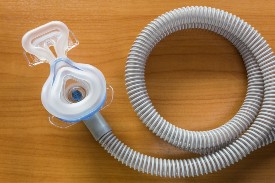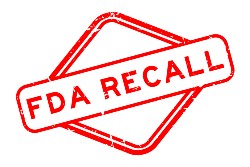Did you develop serious health problems after using a Philips CPAP?
The Philips Respironics CPAP machine sound abatement foam issues may be the cause of persistent and serious side effects after repeated use of the breathing machines. Some users of these devices have found black debris in the breathing tubes and have reported feeling sick to Philips. Potential symptoms of foam particle inhalation or ingestion include:
- Headaches
- Inflammation
- Breathing problems
- Eye, Skin, Nose or Respiratory Tract Irritation
- Nausea and Vomiting
- Dizziness
- Persistent Cough
- Chest Pressure
- Asthma
- Airway irritation and inflammation
When did Philips Respironics Know about the Toxic Foam Issue?
What is the Issue with Philips CPAPs?
Philips Respironics offers products for sleep and home respiratory care including CPAP, BiPAP, and mechanical ventilators. These continuous and non-continuous ventilators are used to provide invasive and non-invasive support for people needing respiratory support or treatment for sleep disorders. The type of ventilators used depends on the therapeutic needs of a patient.
Sound Abatement Foam

Example of CPAP mask and hose, an entryway for the toxic debris.
Philips advised of potential health risks related to the sound abatement foam used in specific Philips Continuous Positive Airway Pressure (CPAP), Bi-Level Positive Airway Pressure (BiLevel PAP) devices, and Mechanical Ventilators.
When the foam breaks down, it can release particles and chemical gases. If these particles or gases enter the body through the nose or mouth, they can cause a variety of health issues that can result in serious injury and require medical intervention to prevent permanent damage.
Even if there are no visible particles, since the period of time for degradation to occur is not known, the foam may already be breaking down and releasing harmful chemicals.
Defective CPAP Devices Linked to:
- Lung Cancer
- Liver Cancer
- Kidney Cancer
- Colon Cancer
- Respiratory Failure
- Kidney Disease
- Liver Disease
The US FDA has received more reports of adverse outcomes, including deaths, from the breakdown of foam in many sleep apnea devices from Philips.
FDA Inspection of Philips Manufacturing Facility
After conducting an inspection of a Philips Respironics manufacturing facility, the US FDA released an update related to the June 2021 Class I recall of Philips Respironics CPAP, BiPaP and other ventilators.
After the inspection, the FDA requested additional safety testing on replacement materials and issued a Form 483, which details how Philips and its foam supplier were aware for years that polyester-based polyurethane (PE-PUR) sound abatement foam could break down and potentially enter a device’s air pathway.
Philips announced the recall on June 14. The FDA inspected the Murrysville, PA Philips Respironics facility on 21 separate days from Aug 26 through Nov 9.
Form 483 – Philips Respironics, Murrysville, PA facility
Class I Product Recall
On June 14, 2021, Philips Respironics announced a voluntary recall for a number of Philips CPAP, BiPAP, and mechanical ventilator devices due to potential health risks related to polyester-based polyurethane (PE-PUR) sound abatement foam used in these machines. Specifically, the sound abatement foam may:
- break down into black particles that can enter the device’s mask, tubing, or air pathway and be inhaled or swallowed by the user
- off-gas certain chemicals that are dangerous and potentially carcinogenic

The FDA classified this as a Class I recall, the most serious type of recall.
The FDA issued a Safety Communication on June 30, 2021; then, on July 29, 2021, the FDA identified this device problem as a Class I recall, the most serious type of recall.
Recalled Devices Include
Most of the devices come from Philips’ DreamStation line. The recall affects all serial numbers of the following affected devices (18 products) manufactured between 2009 and April 26, 2021. 80% of the recalled devices are CPAP machines.
CPAP and BiPAP Devices
- E30 (Emergency Use Authorization)
- DreamStation ASV
- DreamStation ST, AVAPS
- SystemOne ASV4
- C-Series ASV
- C-Series S/T and AVAPS
- OmniLab Advanced+
Noncontinuous Ventilator
- SystemOne (Q-Series)
- DreamStation
- DreamStation Go
- Dorma 400
- Dorma 500
- REMstar SE Auto
Ventilators
- Trilogy 100
- Trilogy 200
- Garbin Plus, Aeris, LifeVent
- A-Series BiPAP Hybrid A30 (not marketed in the US)
Philips CPAP Lawsuit: Compensation for Your Injuries?
The Philips CPAP litigation has been consolidated into an MDL in the Western District of Pennsylvania before the Honorable Joy Flowers Conti
Product liability and class action lawsuits are being pursued by those who may have been exposed to the particles and chemicals released by the defective sound abatement foam used with the Philips CPAP, BiPAP, and mechanical ventilator devices identified above.
Allegations in these suits include (but are not limited to), that the manufacturer:
- Knew about the CPAP machine foam problems long before announcing a recall;
- Negligently continued selling dangerous and defective products without warning consumers;
- Failed to adequately warn about the long-term side effects of exposure to the CPAP machine sound foam;
- Placed the desire for profits before consumers safety;
Those who have suffered cancer, respiratory issues, or other serious health problems after using a Philips CPAP, BiPAP, or mechanical ventilator device are encouraged to seek legal advice as they may be eligible for compensation.
Questions? Contact us at (877) 284-6600.
FREE CASE EVALUATION FROM DEDICATED, EXPERIENCED ATTORNEYS
It can be devastating when the medical devices you rely on fail. The Nash & Franciskato Law Firm has a proven track record against medical device manufacturers.
What we offer goes beyond experience. Our legal team is dedicated to you and helping you put your life back together, giving you:
- Over 80 years of combined experience
- Trusted legal advisor committed to your needs
- Free, no-obligation review of your case
- Super Lawyers for over 10 years
- The AV Preeminence Rating for Ethical Standards & Legal Ability
- Compassionate advocacy for you and your family
Start Your Free, confidential evaluation with one of our Team
If you or a loved one developed cancer, respiratory issues, or other serious health problems after using a Philips CPAP machine, contact the law offices of Nash & Franciskato at (877) 284-6600. The time to request your free, no-obligation case review is today. We will help you determine if your Philips breathing device is the cause of your health issues. We will review your case in a free and confidential consultation, with no risk or obligation to take legal action.
